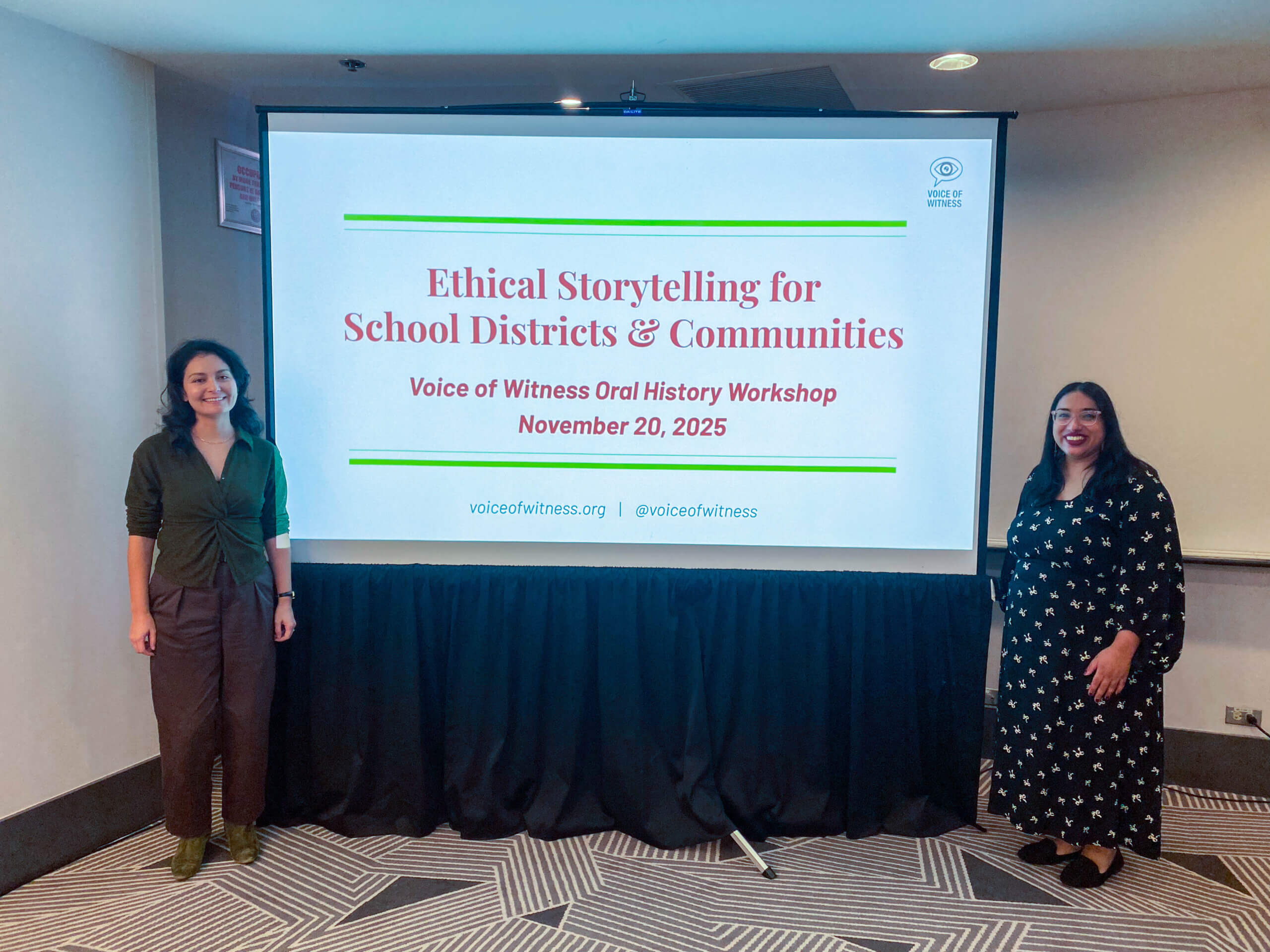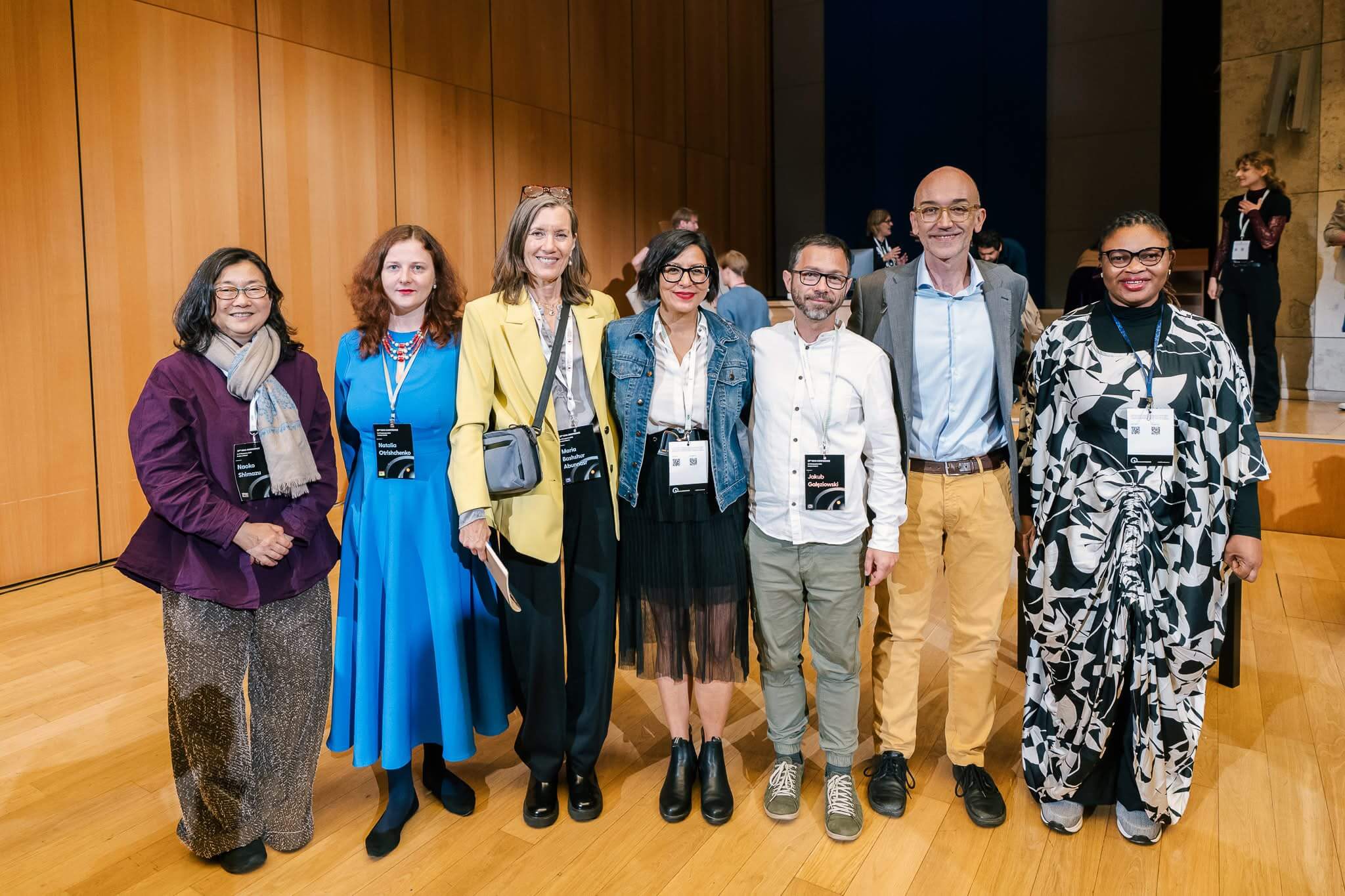
By Erin Vong, Voice of Witness Education Specialist and Program Coordinator
The growing anti-Asian rhetoric in this country has hit very close to home for me, as a daughter of Chinese and Vietnamese refugees and an educator that works with Asian American and Pacific Islander (AAPI) students every day. At Voice of Witness, we believe education is a critical step in the process of both healing this pain and dismantling the systems that created these dynamics, and we’re committed to sharing resources that help support this learning in classrooms and communities across the country.
Stories from AAPI communities have been featured across many books in the VOW series, highlighting ways that intersectionality plays out in human rights crises.
We encourage you to explore the following narratives and others from VOW oral history books, as well as our corresponding free lesson plans:
- Mr. Lai, a narrator in Underground America: Narratives of Undocumented Lives — Born in the southeastern Chinese province of Fujian, Mr. Lai ran into problems when his family violated the one-child policy. He paid smugglers to provide passage out of China and arrived in the US after a year-long journey, which took him through Thailand, Cuba, and Mexico. Mr. Lai has since traveled around much of the US working as a cook to pay off the huge debt he owes his smugglers. He also sends money when he can to his wife and two sons back in Fujian.
- Father Vien The Nguyen, a narrator in Voices from the Storm: The People of New Orleans on Hurricane Katrina and Its Aftermath — After coming to the US in 1975 with his family after the fall of South Vietnam, Father Nguyen became a priest and moved to New Orleans. During Hurricane Katrina, he stayed through the storm to aid parishioners who could not evacuate. As the days wore on and their supplies dwindled, help was nowhere to be found.
- Law Eh Soe and U Agga Nya Na, narrators in Nowhere to Be Home: Narratives from Survivors of Burma’s Military Regime — Law Eh Soe and U Agga Nya Na share their stories of escaping the brutal military crackdowns against protestors in Burma and coming to the US.
- Mohammed “Mike” Ali, a narrator in Six by Ten: Stories from Solitary — Growing up in the Bay Area after his family came to the US from Fiji, Mike turned to gangs in an attempt to protect himself and his friends from bullying they experienced as immigrants. He spent much of his teens and twenties in juvenile hall, jail, and prison before being sent to immigration detention to await deportation at age twenty-four. His case to stay in the US was eventually successful, and he was released from incarceration.
We also want to amplify resources from other organizations that share nuanced, in-depth AAPI stories, history, and movements:
- “A ‘History of Exclusion, of Erasure, of Invisibility.’ Why the Asian-American Story Is Missing From Many U.S. Classrooms” — Article in TIME
- Smithsonian Asian Pacific American Center: Many, many types of resources to connect educators with Asian American and Pacific Islander voices, stories, and community-created materials
- Asian Americans Advancing Justice: A K-12 education curriculum with engaging lesson plans and activities, based on the 2020 documentary Asian Americans from PBS
- Zinn Education Project: Brief profiles of people and events from Asian American and Pacific Islander history
- Densho Digital Repository: Primary sources (including interviews, articles, and photographs) about Japanese American incarceration experiences during WWII
- Inheriting: A podcast about AAPI families, exploring how one event in history can ripple through generations
- Rethinking Schools: An article dismantling the myth of the “model minority”
- Self Evident: A dynamic podcast featuring Asian American stories and community conversations
- Korematsu Institute: Educational resources about Fred Korematsu’s story, the WWII Japanese American incarceration, Asian American history, and current civil rights issues
- Social Justice Books: A list of books for each age group highlighting Asian and Asian American experiences
- Chinese Historical Society of America (based in SF): Lesson plans focused on Chinese American experiences, immigration policies, and more




